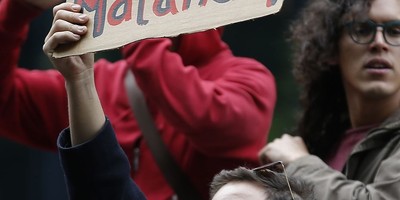Extending the extra unemployment insurance benefits would be bad for the federal budget and bad for the economy, and there is a better long-term solution for unemployment than the current UI system.
With respect to the budget, the proposed benefits would mean about $50 billion of red ink next year, adding to the huge burden of debt we are imposing on young people. There is no free lunch in subsidy programs: Someone will have to pay the bills.
With respect to the economy, some analysts claim that more UI spending will be stimulative, even though Congress already has $1 trillion of deficit spending in the pipeline for next year. Rather than stimulating anything, such huge deficits are destabilizing financial markets and damaging business confidence.
Another negative effect of UI benefits is that they increase unemployment because they reduce the incentive for people to find work. Higher UI benefits delay the need for people to make tough choices about their careers, such as switching industries, taking lower pay, or moving to a different city. It's a basic rule that when the government subsidizes something, we get more of it.
Fiscal experts Martin Feldstein and Daniel Altman found that the "most thoroughly researched effect of the existing UI system on unemployment is the increase in the duration of the unemployment spells. By reducing the cost of remaining unemployed, UI benefits induce individuals to have longer spells." Similarly, Larry Summers, a former top economist to Presidents Clinton and Obama, concluded in his academic work that unemployment benefits contribute to long-term unemployment.
Recommended
Our UI system causes other problems. It suppresses personal savings because people expect the government to care for them when they are unemployed. That is harmful because personal savings are a key source of economic growth—savings get channeled into capital investment, which ultimately raises productivity and wages.
Another problem is the waste and fraud in the current UI system stemming from people getting benefits that they are not entitled to. The Department of Labor estimated that improper UI payments totaled $17 billion in 2010. As UI benefits expand, the waste grows.
Rather than extending UI benefits, policymakers should look at alternatives to the current system. One approach would be to substitute personal UI savings accounts for the current tax-based system, as the nation of Chile has done. In 2002, Chile built on the success of its Social Security personal accounts by having workers make an added deposit to fund accounts covering their possible unemployment.
One advantage of this UI system is that workers won't cheat because it's their own money in the accounts. Another advantage is that workers have an incentive to find a job more quickly so as not to consume their UI savings. Finally, the system adds to old-age security because the balances in UI accounts for most workers would rise over time and be available for withdrawal at retirement.
In sum, welfare-state programs such as UI impose costs and distortions on the economy. Policymakers should be on the lookout for better systems, and it appears that Chile's innovative reforms would be a good approach for us to pursue.
Chris Edwards is the director of tax policy studies at the Cato Institute and the editor of Downsizing Government.org.
This article appeared in U.S. News & World Report Online on December 9, 2011
























Join the conversation as a VIP Member